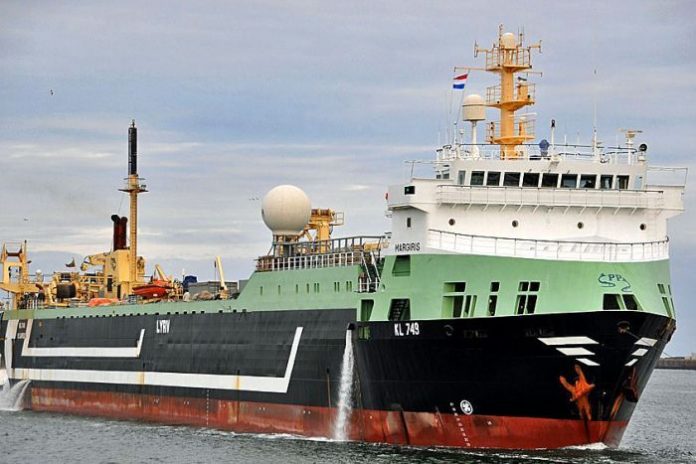By JOHN VAN KLAVEREN
THE BATTLE between commercial and recreational fishers over controversial trawler Geelong Star has sharpened following a forum between both groups.
The 90-metre floating fishing factory will be based at Geelong while it takes a quota of 16,500 tonnes from the Australian Small Pelagic Fishery (SPF), stretching from Queensland to Perth.
Seafish Tasmania is bringing the trawler to Geelong, creating 60 jobs and injecting $20 million a year into the local economy.
But the vessel faces opposition from Stop the Trawler Alliance, including environmentalists and recreational anglers.
Federal agriculture parliamentary secretary Senator Richard Colbeck said the alliance had lost credibility and slurred the reputation of well-regarded organisations over scientific backing for the trawler.
“For the alliance to make the claim that there is no new science (supporting the trawling) before even attending (the) stakeholder consultation forum is completely devoid of any credibility,” Mr Colbeck said.
“We’re committed to engaging with recreational and environmental stakeholders and providing them with the latest available information.”
Mr Colbeck said he was disappointed that some groups had taken a political stance and boycotted previous public consultation processes.
“I encourage stakeholders to take the time to attend these forums and to review the latest science that shows us that the SPF can be fished sustainably,” he said.
Small Pelagic Fishery Industry Association chairman Grahame Turk said commercial fishing in the SPF was a value-added sustainable industry for Australia.
“By catching and freezing omega-3-oil-rich small pelagic fish at sea the Geelong Star is creating highly nutritious food to be eaten by humans in Australia and on export markets,” Mr Turk said.
“This is a value added industry that takes a resource previously worth cents per kilogram and creates a resource worth dollars per kilogram.
“This and sports fishing for trophy species like tuna and marlin can co-exist.
“Future discussions will explore whether the concerns raised by recreational fishers about proximity of commercial fishing activities to recreational fishing activities can be addressed by adapting where and when commercial fishing occurs. In practical terms this may mean where fishing clubs are holding a competition to hunt for tuna or billfish such as marlin, vessels such as the Geelong Star may ensure they’re fishing elsewhere in the fishery during the run-up to the competition so there’s no perception that commercial fishing activities have interrupted the natural roamings of the game fish favoured by recreational fishers.”









